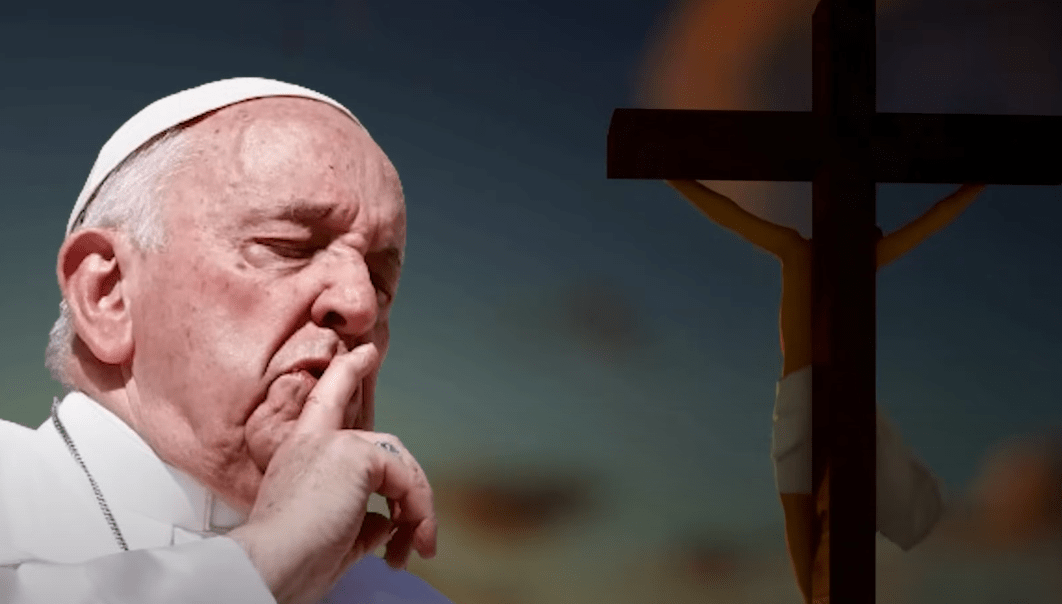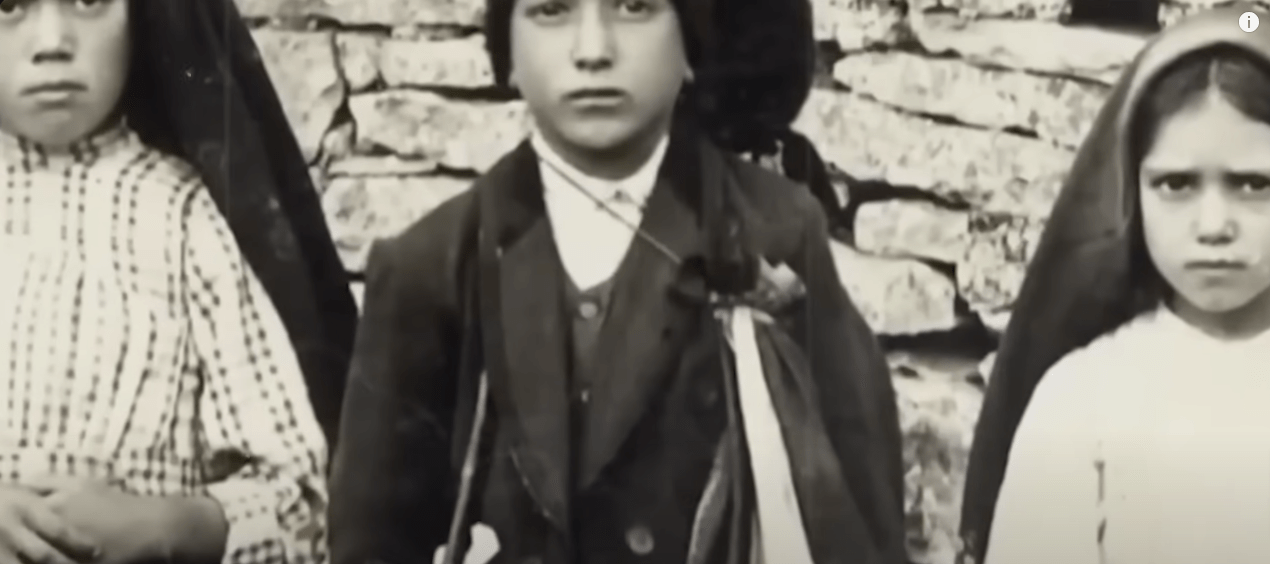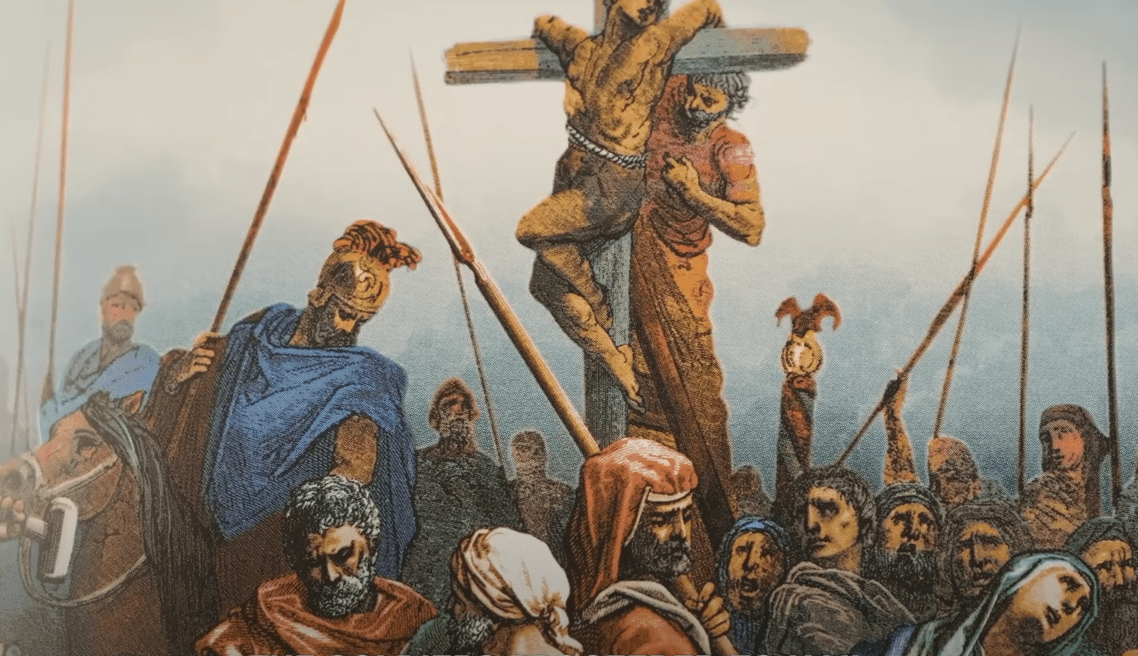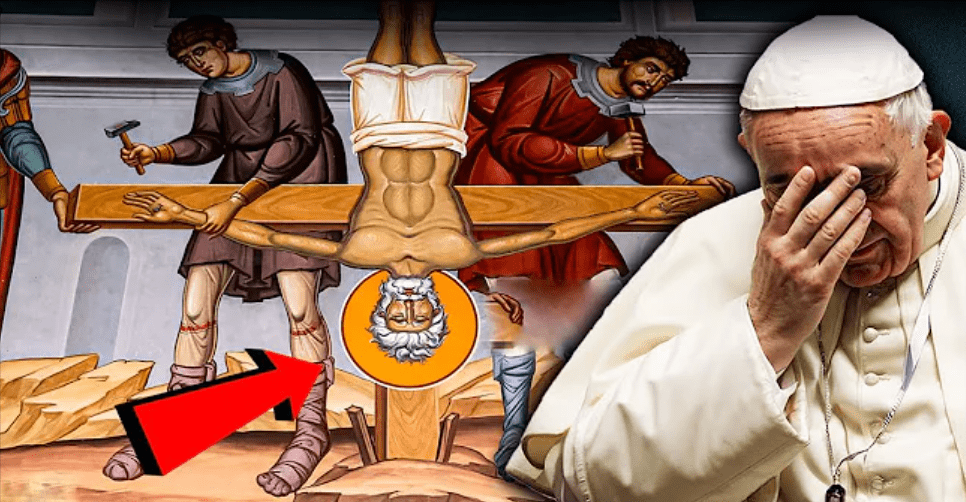In a revelation that has sent shockwaves through the Christian community, Pope Francis recently made a statement about the dξath of Jesus Christ that challenges long-held beliefs.
During a recent address, the Pope suggested that the story of Jesus’ crucifixion may be far more complex than we’ve been led to believe for centuries.
Pope Francis, known for his willingness to tackle controversial topics, has once again sparked intense debate.

His latest comments suggest that Jesus’ crucifixion should not only be viewed as a divine plan, but also as an event deeply rooted in the sociopolitical tensions of first-century Palestine. This perspective challenges traditional interpretations that have been central to Christian faith.
The Pope’s words have raised many questions among theologians, scholars, and believers.
Could it be that the crucifixion, often seen as the ultimate divine sacrifice, was also the result of human and political forces at play? This interpretation doesn’t diminish the theological significance of Jesus’ dξath, but it adds a new layer of understanding by highlighting the human elements involved.
To understand the gravity of Pope Francis’ statements, it’s essential to consider his unique approach to leadership.
From his humble beginnings in Buenos Aires to becoming the 266th Pope of the Catholic Church, Francis has consistently pushed the boundaries of traditional thought.
His emphasis on social justice, environmental issues, and interfaith dialogue has defined his papacy, and his recent comments on Jesus’ dξath are a continuation of this forward-thinking approach.
Pope Francis’ views suggest that Jesus’ teachings and actions were so radical that they threatened the established religious and political order of His time.
This made Him a target, leading to His crucifixion not just as a fulfillment of divine prophecy, but as a consequence of His commitment to justice and truth.

By focusing on this perspective, the Pope invites Christians to reflect on how Jesus’ life and dξath still resonate in today’s struggles for justice and equality.
The reactions to Pope Francis’ statements have been varied and intense. Some theologians welcome this fresh perspective, seeing it as a way to deepen the understanding of the crucifixion by integrating historical context with spiritual truth.
They argue that this approach enriches the Christian faith, making it more relevant to contemporary issues.
However, others are concerned that this emphasis on sociopolitical factors could overshadow the spiritual significance of the crucifixion.
Critics fear that focusing too much on the historical and human aspects might dilute the divine mystery and reduce the event to merely a tragic outcome of political conflict.
Despite the controversy, Pope Francis’ comments have opened the door for a broader discussion within the Church and beyond.
His remarks challenge believers to consider the full scope of Jesus’ sacrifice—not only as a divine act of redemption but also as a profound statement against injustice.

This bold stance from Pope Francis may well redefine how Christians understand and teach the story of Jesus’ dξath.
By encouraging believers to look at the crucifixion through both a divine and a human lens, the Pope is fostering a faith that is both reflective and active, urging Christians to engage more deeply with the ethical implications of their beliefs.
As this discussion continues to unfold, it’s clear that Pope Francis has once again stirred the waters, prompting Christians worldwide to reflect on their faith in new and challenging ways.
Whether you see this as a necessary re-examination or a controversial shift, one thing is certain: the conversation about Jesus’ dξath and what it truly means is far from over.
What are your thoughts on Pope Francis’ revelation? Share your views in the comments, and let’s continue this important conversation.
Johnny specializes in content related to Jesus, the Bible, and religious topics. With a profound understanding of spirituality, Johnny’s articles are both insightful and inspiring, guiding readers through the complexities of faith.




